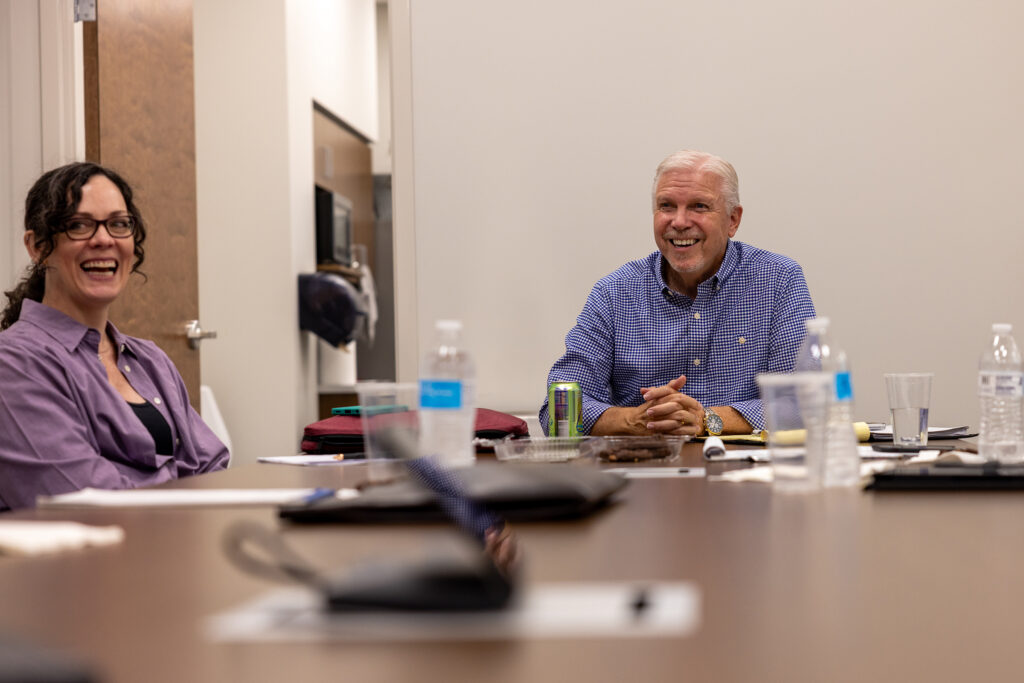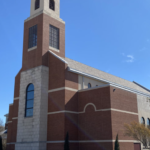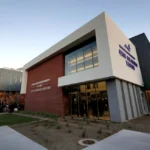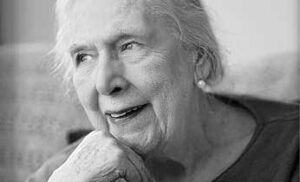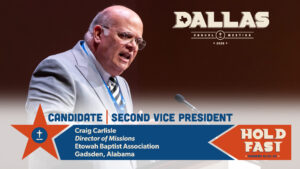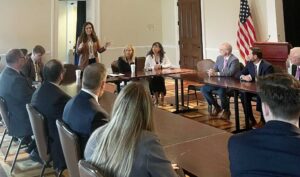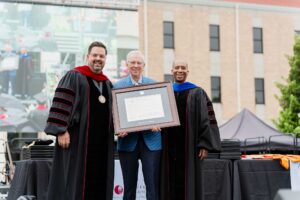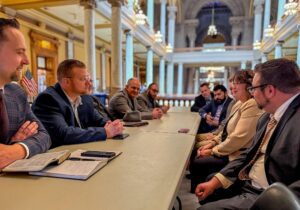
JEFFERSON CITY, Tenn. (BP) – Professor Phil Young’s morning routine in preparing for class looks a bit different than most college professors. He arrives on site around 7:45 in the morning.
“We go through all the normal screening that all the staff goes through to make sure we’re not bringing anything in we shouldn’t,” says Young. “We get to the classroom between 7:45 and 8 a.m. Prepare the room for the day. Students begin arriving around 8:15.”
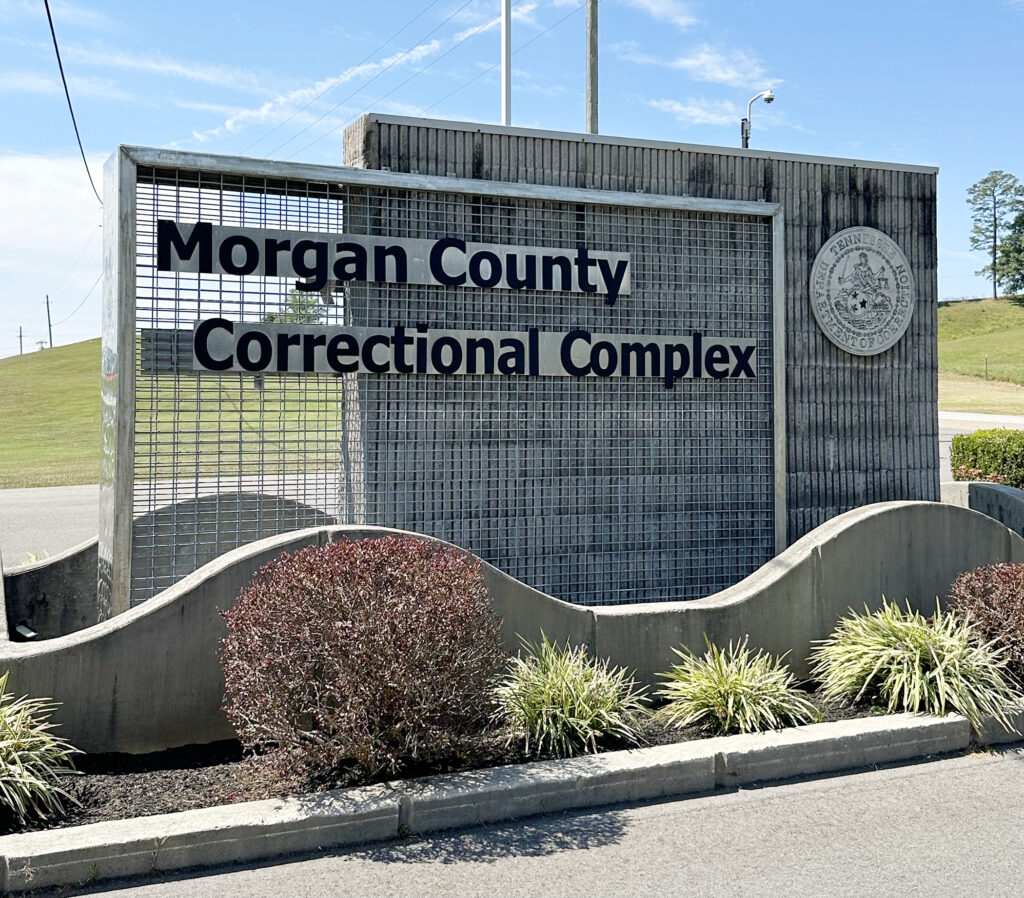
It’s a structured routine that the Carson-Newman University Director of Prison Ministry and the students have gotten used to since the university launched its prison ministry last fall in coordination with Morgan County Correctional Complex.
Fourteen inmates comprise the group, which began its second year this fall. Each student had to apply to the program designed to offer a Bachelor of Arts degree in Christian Studies, with an emphasis in Christian Ministry. Along with applying, each student had to meet certain criteria.
“They have to articulate a salvation experience in their life – a time when they came to place their faith and trust in Christ as their Savior,” said Young, “because it is an unapologetically Christian program coming out of Carson-Newman.”
The learning process is intense. Five days a week. Six-hour days. Focused. Intentional. Along with a sociology class, courses this fall span from “Intro to Old Testament” to “Sermon Preparation and Delivery.”
Young admitted that as one of the program’s professors, he initially found it intimidating. “You think, ‘How am I going to possibly fill six hours of lecture time for a three-hour course?’ But what you find is that the students are very engaged. The classroom typically is very interactive. They’re asking questions. They’re sharing opinions. They prepare their material. They’re very devoted and interested in learning.”
He noted the group’s desire to perform at the highest level – going above and beyond basic expectations. The classroom engagement often allows for students to share their life stories. According to Young, the experience opens the door to something special – sometimes, it’s the professors learning from the students.
“We get a chance to see how they view their spiritual experience in a very unique and different context than what we bring to the classroom,” Young said. “We get to bring our perspective on Scripture and theological education, and they help us see it from their perspective. We get to see it through their eyes, and that helps us to see God in a way that may be bigger and broader than we’ve seen God sometimes in our limited scope.”
Young is no stranger to ministry. Following his service in the United States Air Force, he spent 20 years as pastor of a local church. He has served in different roles within the Tennessee Baptist Mission Board, as well as director of missions for the Knox County Association of Baptists. The opportunity to also serve as an adjunct professor at Carson-Newman is something he describes as “so fulfilling.”
However, following a day of class one fall semester, David Crutchley, dean of C-N’s School of Biblical and Theological Studies, approached Young about overseeing a new initiative for a Prison Ministry. Not initially drawn to the prospect, Young relented, promising his dean he would pray about the offer.
“I loved being a director of missions and working with churches and pastors. And I loved being able to teach occasionally as an adjunct professor at Carson-Newman,” he said, adding he was in what he believed was the “sweet spot” of concluding of a fulfilling career. “Five more years, I will set a new trajectory for the association and be ready to hand that off to the next director,” he said. “But I continued to pray about it, and I could never get it out of my mind or my heart.”
That’s when Crutchley offered an invitation to accompany him to interview the first set of applicants at the prison. The visit presented the answer Young had been seeking.
“God spoke to me very directly through that experience and through the stories of the prison students to tell me that this is where He wanted me this season of my life.” Such clarity has offered peace in his decision. And with the start of his second year, he’s never looked back.
Young said he continues to be impressed with the students’ dedication and drive to excel. When summer grades were finalized, the results were undeniable. Of the 14 students in the class, 12 finished the first year with honors. Five students hold a 4.0 GPA. Every member of the class qualifies for membership in Tri-Alpha Honor Society for First Generation College Students.
As pleased as he is with how well the students are doing academically, Young points to a bigger picture that provides context to C-N’s program: some students will never step outside their current setting, spending the rest of their lives in prison. It is because of that, a different perspective comes into view.
“This is not just about getting a bachelor’s degree,” he explained, noting that other educational programs within the state’s prison system already offer such opportunities.
“We want to give them a very solid biblical theological education,” he said. “But the ultimate goal is that they will be deployed and utilized in the Tennessee prison system as ministers.”
The program’s approach of meeting the inmates where they are and offering a Christ-centered education and sense of purpose is already yielding stories of impact and redemption.
Young recounts when one student went before his parole board hearing. When asked if he had anything he wanted to say – the inmate’s response was not what the board expected.
“He asked the parole board to delay his parole hearing for another two and a half years so that he could complete this program,” Young said. “He said, ‘I need to finish this program, and then I will be the man society needs me to be, and I’ll be the father and the husband that I need to be when I go back home.’
“That’s why Carson-Newman is a special place,” Young said. “Carson-Newman is giving an opportunity for men like this to fulfill one of the values the university has identified – and that is to produce servant-leaders.”
Young is thankful for the many ways and many years he’s served in ministry, but notes he is especially grateful for where he finds himself now. Maybe more than he first anticipated.
“The joy, the satisfaction, the fulfillment, the excitement that I still wake up with every day, is just very real to me – that this is what God’s called me to do,” he said. “I feel like hopefully, as much as we’re helping to impart into the students, their experience in my life is helping me to grow spiritually beyond anything that I ever dreamed possible.”
